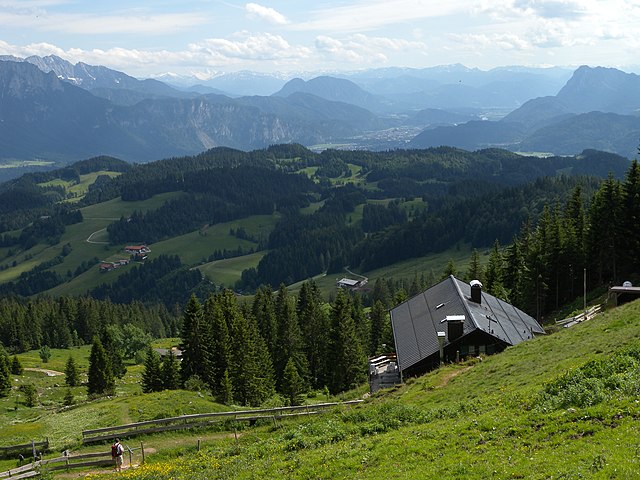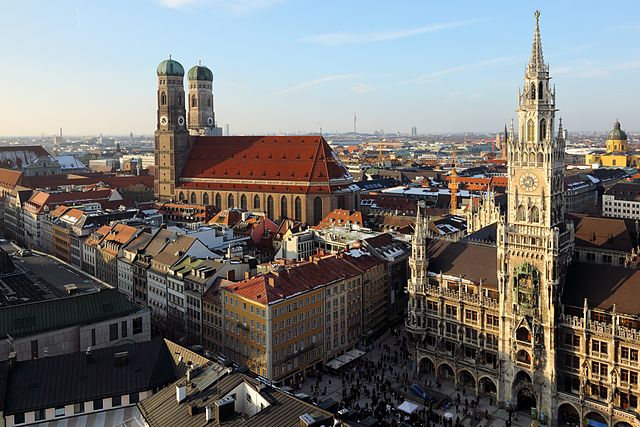Regensburg is a city in eastern Bavaria, at the confluence of the Danube, Naab and Regen rivers, Danube's northernmost point. It is the capital of the Upper Palatinate subregion of the state. With more than 150,000 inhabitants, Regensburg is the fourth-largest city in the State of Bavaria after Munich, Nuremberg and Augsburg and the 8th largest of all cities on the Danube river. From its foundation as an imperial Roman river fort, the city has been the political, economic and cultural centre of the surrounding region. Later, under the rule of the Holy Roman Empire, it housed the Perpetual Diet of Regensburg.
Image: Regensburger Altstadt von oben
Image: Rathausplatz 4 Altes Rathaus Regensburg 1
Image: Schloss St. Emmeram, Blick auf den Südflügel.ipg
Image: Regensburg, die Steinerne Brücke
Bavaria, officially the Free State of Bavaria, is a state in the southeast of Germany. With an area of 70,550.19 km2 (27,239.58 sq mi), it is the largest German state by land area, comprising roughly a fifth of the total land area of Germany. With over 13 million inhabitants, it is the second most populous German state behind North Rhine-Westphalia, but due to its large physical size its population density is below the German average. Major cities include Munich, Nuremberg, and Augsburg.
A memorial to soldiers who died in World War I and World War II in Kröning, Bavaria
The Bavarian Alps (foreground) and Tyrol in Austria (background), including the Inn valley (center), Kaisergebirge (left), Pendling (right), and the snow-capped High Tauern (center left)
Munich with Frauenkirche (left) and Rathaus, Munich's town hall
The Bavarian State Chancellery in Munich








